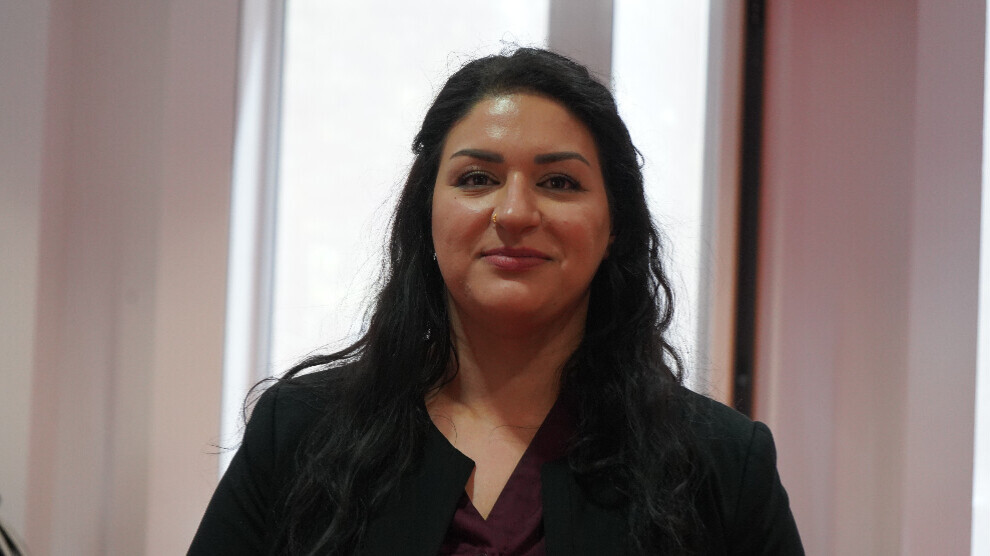Cansu Özdemir: The ban on the PKK in Germany is not legally justified
Cansu Özdemir criticized the continued ban on the PKK in Germany and stated that arrests based on this ban are legally unfounded.
Cansu Özdemir criticized the continued ban on the PKK in Germany and stated that arrests based on this ban are legally unfounded.

The Kurdistan Workers’ Party (PKK) officially announced its dissolution during its 12th Congress, held between 5 and 7 May. Despite this historic decision, former Co-Chair of the European Kurdish Democratic Societies Congress (KCDK-E), Yüksel Koç, was arrested in Germany last week on charges of "PKK membership."
Following the PKK’s announcement, questions have arisen regarding the German government’s stance and the future of its policies towards the Kurdish movement. Cansu Özdemir, a member of the German Federal Parliament from Die Linke, shared her views on Germany’s position and its approach to the process initiated in Turkey.
What steps should Germany take in this process? As Die Linke, are you planning to bring this issue to the parliamentary agenda?
I submitted two written questions on Monday. The first concerns how the German state intends to respond to the peace process that has begun in Turkey, particularly after the PKK took a historic step by declaring its dissolution. What political steps will be taken with regard to the PKK ban moving forward, and so on.
The arrest of Yüksel Koç in Bremen has already revealed the direction the new German government intends to pursue. I find this approach quite significant. After all, a historic step has been taken, and this is a historic opportunity. A peace process has been initiated, and the German government could play a very important and constructive role. We are talking about two million people from Kurdistan living in Germany, who make up the second-largest migrant group in the country.
What was your second parliamentary question?
Our second question addressed how the German state and government plan to engage in this process. We expect to receive a response within seven days. However, based on the initial statements, I could not clearly identify what kind of roadmap the German government intends to follow.
As Die Linke, we specifically demand that the newly formed German government take a constructive approach to this process and support it. A process has begun, but in any peace process, both sides must have equal rights. Those rights must be guaranteed.
Unfortunately, this is not the case for Mr. Abdullah Öcalan. He remains in isolation on Imralı Island, unable to freely participate in the process, to move, or to speak. For this reason, I believe the German government’s primary duty should be to put pressure on Turkey and to call for the release of Abdullah Öcalan. Ultimately, Mr. Öcalan is the spokesperson for this process. He is its key. The process will only move forward positively with his freedom. That is our demand.
Our second demand is the lifting of the PKK ban. I do not believe it is legally justifiable for a dissolved organization to remain banned in Germany, or for activists and politicians to continue being arrested under that ban.
What kind of steps should Germany take to support the peace process in Turkey, particularly in relation to those who have migrated to Germany, integrated into society, but have been victimized in the past due to the PKK ban, like yourself? How should Germany treat Kurdish associations, which are among the most important actors in spreading the peace process at the grassroots level? What kind of dialogue should be developed with the Kurdish community?
First and foremost, the newly formed German government must ask itself this question: We are talking about two million Kurds, a community that has been living here for four or five generations and has become a significant economic force. This is a migrant population that has made major contributions to the German economy, particularly through entrepreneurship and taxes.
However, the German state has so far pursued a single policy: criminalizing people from Kurdistan. It has judged them solely under the banner of the PKK ban, ignoring the impact, the positive contributions, and the peaceful perspectives that Kurdish people have brought to German society. In fact, it has attempted to suppress them at every opportunity.
We have seen this clearly in recent years. This is not just about police raids on associations. Even Newroz celebrations have been banned, and books written in Kurdish have been confiscated. These are also part of what we are talking about.
Germany needs to change its policy towards Kurds and develop a new approach. The largest migrant group here is of Turkish origin, and many German governments have provided financial support to Turkish mosques, institutions, and especially associations.
We are honestly stunned by this. Kurdish associations mainly carry out cultural work, provide educational support, and offer counseling services for children attending schools here. These are meaningful activities that contribute to the fabric of society.
Politically, I also want to highlight this: after the protests began in Iran, the Social Democrats, the Greens, and many others began to repeat the slogan ‘Jin, Jiyan, Azadî’ (Woman, Life, Freedom). But they tried to redefine it in their own terms. Yet everyone knows very well that the originator of ‘Jin, Jiyan, Azadî’ is Mr. Öcalan.
I believe this is an important point that must be acknowledged. Especially since we know that many of them support this philosophy. And if you support the philosophy and agree with the essence of this struggle, then you must also act accordingly.